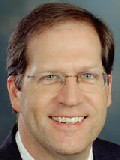Sununu and Pickering Introduce VOIP
Regulatory Freedom Bills
April 5, 2004. Sen. John Sununu (R-NH) introduced S 2281, the "VOIP Regulatory Freedom Act of 2004" in the Senate on April 5.. Rep. Chip Pickering (R-MS) introduced HR 4129, also titled the "VOIP Regulatory Freedom Act of 2004", in the House on April 2. The two bills are very similar, but contain several differences in the section dealing with Federal Communications Commission (FCC) authority to regulate connected VOIP applications.
|
||
Both bills provide that regulation of voice over internet protocol (VOIP) is an exclusively federal prerogative. Both bills provide that the states cannot tax the offering or provision of a VOIP application. And, both bills provide that the Federal Communications Commission (FCC) has regulatory authority only in enumerated areas: interprovider compensation, universal service contributions, and law enforcement surveillance. However, the bills differ regarding the nature and extent of the FCC's regulatory authority in these categories.
The bills do not give the FCC regulatory authority over E911, disabled access, security, or reliability. Rather, they call for the FCC to appoint an industry body to develop consensus guidelines. The bills completely remove privacy protection and price regulation from of the regulatory process.
For a detailed summary of the contents of each bill, see story titled "Summary of VOIP Regulatory Freedom Bills", below.
Sen. Sununu is a member of the Senate Commerce Committee, and its Communications Subcommittee. Rep. Pickering is a member of the House Commerce Committee, and its Subcommittee on Telecommunications and the Internet. Neither bill has cosponsors.
Sen. Sununu generally takes a free market approach to telecommunications and internet issues. He also takes a libertarian approach on issues that involve the intersection of communications and law enforcement searches and surveillance.
For example, he is a cosponsor of S 1709, the "Security and Freedom Ensured Act of 2003", or SAFE Act, a bill to roll back a few of the more controversial provisions of the USA PATRIOT Act. See, story titled "Senators Craig and Durbin Introduce Bill to Modify PATRIOT Act" in TLJ Daily E-Mail Alert No. 753, October 6, 2003. He is also a cosponsor of S 1695, the "PATRIOT Oversight Restoration Act". See, story titled "Sen. Leahy Introduces Bill to Expand List of Surveillance Provisions of PATRIOT Act to Be Sunsetted", in TLJ Daily E-Mail Alert No. 757, October 14, 2003.
Hence, it is not unexpected that one of the major differences between Sen. Sununu's and Rep. Pickering's versions of this bill is on the subject of law enforcement surveillance of VOIP applications, and CALEA, or CALEA-like, regulation. Rep. Pickering's version is more FBI friendly.
 Sen. Sununu (at right) spoke in the Senate regarding
his bill. He said that VOIP is "a growing area of
technology and innovation, but it is one where there is not a very clear path
regarding regulatory and taxing jurisdiction, and there are not a lot of laws on
the books that clearly address this new technology." (See,
transcript
of statement.)
Sen. Sununu (at right) spoke in the Senate regarding
his bill. He said that VOIP is "a growing area of
technology and innovation, but it is one where there is not a very clear path
regarding regulatory and taxing jurisdiction, and there are not a lot of laws on
the books that clearly address this new technology." (See,
transcript
of statement.)
He said that the purpose of his bill is "to make sure consumers continue to have the benefits of lower costs, new features, and better service that is the potential of this technology".
He then summarized the content of his bill. He said that it "declares this is a technology that uses national and global broadband data networks, the Internet, that we have all read and heard so much about by this point in time. It recognizes these are international networks, global networks, and therefore we should have Federal jurisdiction in this area."
Also, "it takes the step of preempting States from regulating in this area, the area related to voice-over-Internet-protocol applications, because what we do not need is a patchwork of 50 different sets of regulations that would stifle the innovation, the investment, and the productivity we all hope will come from this technology."
He elaborated that "Even worse, the regulations some States have already begun to try to apply are not regulations developed for the Internet, broadband, or a voice-over-Internet-protocol application. They are really designed for a copper wire circuit switch telephone network that was invented 100 years ago and for which most of these State regulations were developed in the 1930s, 1940s, and 1950s. It is an outdated system and we should not be trying to force old regulatory structures on this new technology."
He continued that his bill will also "clarify the definition for information services, for VOIP applications, in a way that can be easily understood given new and emerging technologies." He added that "It states clearly what it is and what it is not from a regulatory perspective, and then treats it much like we would any other information service that uses Internet protocol, whether it is an e-mail, an instant message, or sending other data over the Internet."
He also said that "The bill makes sure that voice-over-Internet -protocol providers participate in existing Federal universal service programs. In other areas, such as E-911 emergency calling, and disability access, the bill calls for an industry group to work out the implementation of these important features for the new technology."
As for access charges, he said that his bill "will make sure we do not apply the old access charges to this new technology. We put forward a requirement for the FCC to work out a new system for intercarrier compensation and, of course, we recognize law enforcement will need access to these new voice-over-Internet-protocol applications and state it has to be the same or better access but no less than the access available for information services that currently exist today."
Finally, he said that his bill "protects consumers by ensuring that this new service won't be taxed at the State level."
 Rep.
Pickering (at left) issued a release regarding these
bills. He stated that "VoIP is the next step in voice communications. As this
efficient technology grows, consumers will benefit from advanced services and reduced
costs ... But for the industry to develop and prosper, we must have a national standard
that prevents patchwork regulation from stifling innovation."
Rep.
Pickering (at left) issued a release regarding these
bills. He stated that "VoIP is the next step in voice communications. As this
efficient technology grows, consumers will benefit from advanced services and reduced
costs ... But for the industry to develop and prosper, we must have a national standard
that prevents patchwork regulation from stifling innovation."
His release adds that his bill ensures "a greater degree of market
certainty and prevents a misguided approach to regulating VoIP, spurring private
innovation which will create competition and costs savings for consumers.
Pickering's legislation protects rural communication through provisions
regarding the universal service fund and interprovider compensation. No change
is made in the competitive transmission access provisions in the 1996
Telecommunications Act."